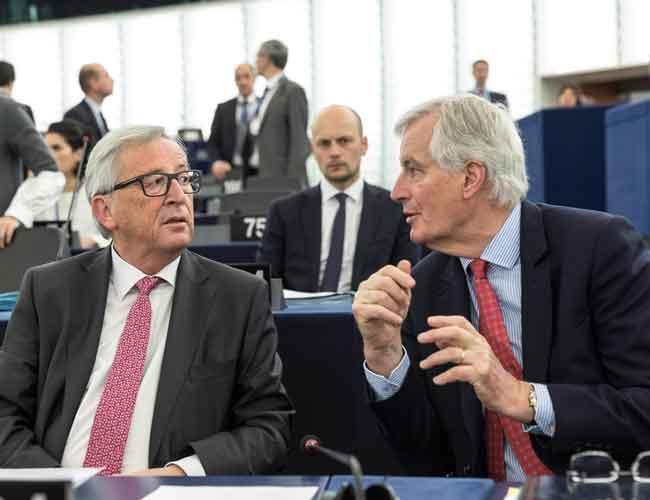Rift over British payments to EU still key in talks: Brussels
BRUSSELS-The Associated Press

The European Union insisted on Oct. 3 that Brexit negotiations with Britain will not move onto future relations until enough progress on such things as London’s exit payment has been made.
Britain desperately wants talks to move onto future trade and security arrangements but EU Commission President Jean-Claude Juncker told a session at the European Parliament that more needs to be done on the withdrawal issues first.
Juncker said “the taxpayers in the EU 27 should not pay for the British decision” to leave while the bloc’s chief negotiator Michel Barnier said “serious differences remain” on how many bills the U.K. still has to settle. Estimates vary widely from 20 billion euros ($27 billion) to over three times that amount.
“Serious rifts remain, especially on the financial settlement,” Barnier said.
“We will not pay at 27 what has been decided at 28, it is simple as that.”
EU parliamentarians were set to approve a resolution later Tuesday that will call for a postponement of any move to widen the talks with Britain, unless “a major breakthrough” takes place during the fifth round of negotiations in Brussels next month.
Observers said decisive progress was highly unlikely. The moves further dampened hopes that the EU leaders would give the green light to an expansion in the talks at a summit on Oct 19-20.
Many lawmakers were also dismissive of the Britain’s Conservative government, which is widely seen as insecure and bumbling.
The head of the biggest party group in the European Parliament called for the sacking of British Foreign Secretary Boris Johnson for stoking confusion over the Brexit talks.
European People’s Party chairman Manfred Weber appealed to Prime Minister Theresa May: “Please sack Johnson, because we need a clear answer who is responsible for the British position.”
Weber turned Henry Kissinger’s observation about the many leaders in the EU onto Britain, asking who he should call to know the real U.K. position on Brexit.
He said: “Who shall I call in London, who speaks for the government? Theresa May, Boris Johnson, or even (Brexit negotiator) David Davis?”
















